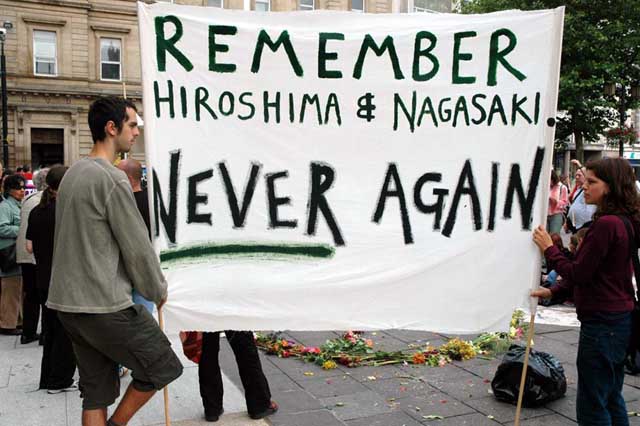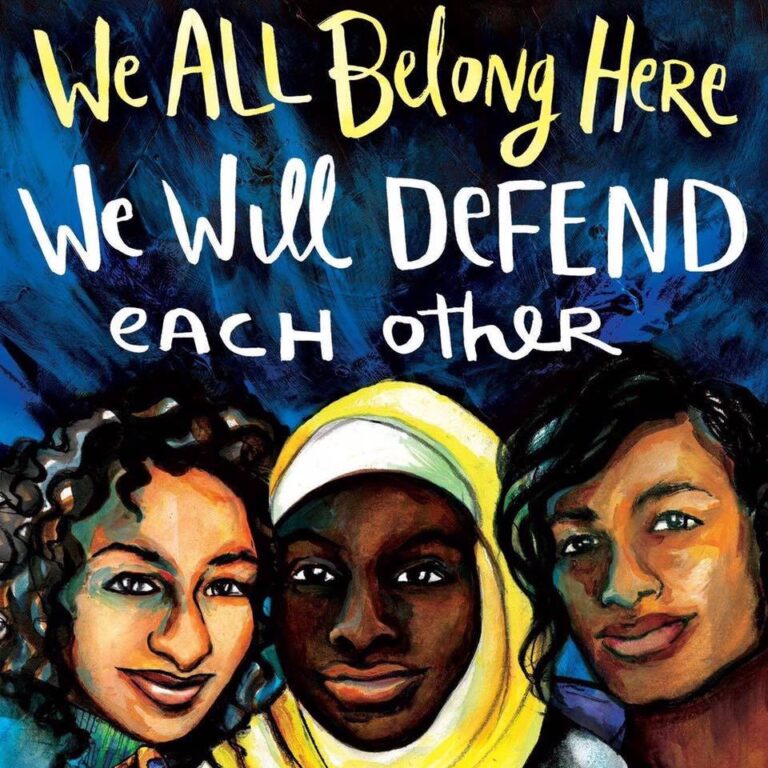Looting By Any Other Name
September 15, 2005
Looting By Any Other Name:
The Profit-Driven War
By Brian J. Foley
[Text of speech given at the conference, “The Failure of Global Empire…]
More than two years later, many people still ask, “Why did the US invade Iraq?” Some people answer, “For oil.” Others say, “To remove a dangerous dictator,” or, “To liberate Iraqis,” or, “To spread democracy.” There are other possible answers as well: To project American power in the strategic and volatile Middle East. To spread democracy. To help Israel. The question lingers because the initial reasons that our government gave, that Iraq had WMD and planned to use them against the US, or that Iraq was allied with Al Qaeda, have been disproved.
Here’s another answer to the question: We invaded Iraq to invade Iraq.
That’s right, it’s a circular answer. It might not be the only answer, it might not be provable, but let’s consider it: We invaded Iraq to have a war. We had a war because there are powerful interests in our country that are geared toward making money from war. How? Let us count the ways. There are companies that help break things, by making the tools for violence and destruction, such as Lockheed Martin and Northrop Grumman. There are companies that fix what gets broken, such as Bechtel and Halliburton. There are companies that protect people as they break things and as they fix what’s broken, such as Blackwater and Vinnell Corp. There are companies that want our government to smash across borders so they may bring new products and infrastructure, companies that we will see set up shop in that country. There are companies that want our government to smash across other countries’ borders so they may suck the resources out from underneath the people there, such as the big oil companies. There are companies that like the US to attack other countries so they may have something entertaining to tell their audiences in the time between commercials: ABC, NBC, CBS, FOX, CNN.
This is war profiteering, but with a twist. Historically, war profiteering amounted to this: when there was a war, people tried to profit from it. A company making clothes might also start making uniforms and sell them to the army and make them as cheaply as possible and sell for the highest price possible. Now, though, companies are making war for profit. Lockheed Martin, Northrop Grumman, Vinnell and Blackwater, such companies would not exist as we know them without war.
This is not a conspiracy theory. This is basic corporate law. Corporations are set up to limit their owners’ risk of liability while the owners maximize profits. The directors and managers who run the company for the owners have a legal duty to maximize profits. The owners (shareholders) can sue the directors and managers if these employees don’t maximize profits in any given situation. These companies are not breaking the law by serving the US military and government. Indeed, they believe they are helping it. Look at their websites. They flaunt the companies’ connections to the US government. Old Glory and aggressive-looking eagles abound!
Forget “social responsibility,” the idea that says a corporate manager may decide not to maximize profits if doing so would harm other “stakeholders” of the corporation, that is, individuals other than the company’s owners. Although many people can see how building weapons is detrimental to other stakeholders (read: everyone on our planet), what manager of a weapons company would ever decide to stop selling these products?
So, the weapons companies have a legal duty to make as many weapons as possible and as cheaply as possibly and sell as many of them as possible at the highest possible price. The only limitation is the market. And these companies will do whatever they can to capture the market and expand their markets (just as if they were making and selling diapers or cars). So they aim to sell as many as they can to the US government. And to foreign governments as well. If the rules prohibit US companies from selling weapons to foreign governments, or to particular foreign governments, these companies will try to have those rules rewritten.
How do companies get the government to buy their weapons? Marketing, for one. Good old fashioned campaign donations and lobbying, for another. And newfangled influence, such as getting their people onto the Defense Policy Board, a group of 30 people who advise the Pentagon. A 2003 study showed that 9 of the 30 members on the Defense Policy Board were connected to weapons companies. Then there is the “revolving door,” where the companies hire people from the government, and people from the companies go work for the government. People like dealing with people they know.
Weapons companies also exert influence via “briefings,” “position papers” and op eds from “policy centers” and “foundations” that include people connected to these companies (and other companies with an interest in making war for profit). Some of these think tanks are funded in part by weapons companies or other companies that profit from war. Some of these companies even get a tax break for such “charitable contributions.” (For more on this phenomenon, I recommend William D. Hartung’s book, How Much Are You Making on the War, Daddy? (2003) and Jeffrey St. Clair’s forthcoming Grand Theft Pentagon).
But it’s not just the government that these companies seek to influence. They will try to influence the media and the general public, through think tanks and ad campaigns. They know that if there’s a climate of fear, then the public will be assuaged by the government’s buying more weapons. Various officials will work to prove they’re “tough on defense.” Officials who are “weak on defense” will not stay in office long.
The companies also hire lobbying firms. These firms make money from war, too. In fact, the US government has hired PR firms to help the government “sell” its wars, such as the 1991 Gulf War and the 2003 invasion of Iraq.
The problem has become worse since the 1990s, when many military duties were “outsourced” from the government to private companies. Private companies help build bases, deliver mail, and cook meals. Private contractors even interrogate prisoners captured on the battlefield. If there are no troops, no bases, and no prisoners, such companies can’t make money.
Again, this is not a conspiracy theory. It is institutions and people acting in their interests. We all act in our own interests, one way or another. To think that these institutions and people would not use all of the means none of what I have described, by the way, is necessarily against the law available to them to pursue their interests would be naïve. So, this is a serious problem, because it is so embedded in our economic and political system, our way of life. It’s also a problem that flies under the radar screen of most of the public and even most activists.
What to do?
- “Return” the war-making powers to Congress. This will help curb these corporations’ influence on the government. This is not a perfect solution, of course, but Congress is the branch of government that is supposed to debate the issue of going to war, and Congress is more transparent than the Executive Branch. Right now the power is concentrated in the Executive, and the decision to go to war has been streamlined. Corporate interests can quietly focus their energy there.
- Check out the War Resisters League, the world’s oldest secular antiwar group. The WRL is waging a “Stop the Merchants of Death” campaign that is teaching people about this corporate connection, about “making war for profit.” We must expose what is going on and educate the public about it how our system is geared toward making war in order to make profit. For example, the WRL recommends that we join antiwar groups; campaign against our local “merchant of death”; expose the profiteering on the Defense Policy Board; demand that our government officials be free of conflicts of interest; become activist shareholders in weapons companies; take available legal action against companies that break the law as they profit from war. The WRL has a speakers’ bureau that can provide someone to address your local school, church, book group, talk group or the like. You can contact WRL at www.warresisters.org
- Organize politically to increase and improve social welfare programs. Many people don’t speak out because they’re afraid of losing their jobs, which, in our country, is a sort of death: no more job means no more money, no more health care, no more pension plan. What Lockheed employee, for example, wants to go to war protest when his boss might end up seeing her marching and chanting “No Blood for Oil” on TV? Who will email information about an upcoming antiwar protest, or forward an incisive article about why the US should not invade, say, Iran or Syria, when their employer can read the email? If peoples’ basic needs are provided for regardless of their employer, they will become braver citizens.
This concern is especially acute for young people, who have historically been a font of political activism. Many fear they’ll never be able to pay off their school loans. Why join antiwar groups or go to protests when potential employers might find out? If young people know they are headed off to the corporate world, they might decide to make the transition easier by adopting the attitudes and values of the companies they plan to serve.
We can also get through to young people by working to reveal that it is not a great thing to work for weapons companies. Activists made working for Big Tobacco look unpalatable. We can do the same thing vis a vis “defense” companies. We can help provide information about alternative careers that would let people work for social justice, and where people can speak freely. Let’s let young people know they are being duped by these companies about war about bravery, glory, fear, the need for war, and the like.
None of us wants to be duped. But we have been duped. Many Americans believe that violence is a simple and quick solution to diplomatic and social problems. You don’t have to learn Arabic to bomb Iraq, for example. But we’ve seen that bombing doesn’t solve much of anything. We must educate people about the success of diplomacy, peace work, exchanges, nonviolent movements. Our country’s faith in weapons and war is based on our culture’s faith in violence. Our fellow citizens must be encouraged to drop this faith, to become freethinkers, heretics. And to declare a war on their own terror, to rigorously question those who warn that our nation is in enormous danger from various enemies.
We must point out how we’re being sold this philosophy of fear.
Brian J. Foley is a professor at Florida Coastal School of Law and State Chancellor for Florida for the International Association of Educators for World Peace. He can be reached at brian_j_foley [at] yahoo.com
Share





